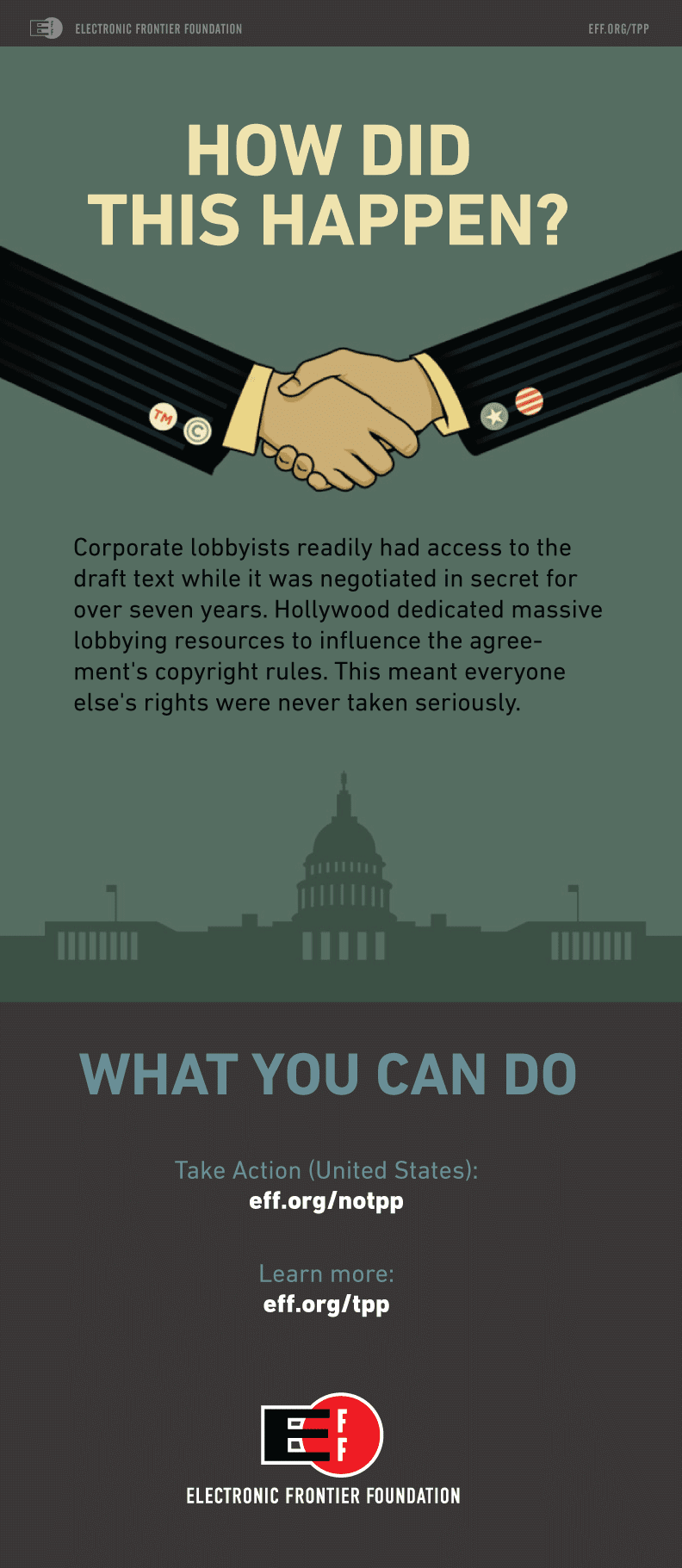How Could This Effect Bloggers?
- Create New Threats for Journalists and Whistleblowers:Dangerously vague text on the misuse of trade secrets, which could be used to enact harsh criminal punishments against anyone who reveals or even accesses information through a "computer system" that is allegedly confidential.
- Enact a "Three-Step Test" Language That Puts Restrictions on Fair Use: The U.S. Trade Representative (USTR) is putting fair use at risk with restrictive language in the TPP's IP chapter. Companies that adopt more user-friendly rules could also risk lawsuits by content industry investors who believe these rules limit their profits.
- Place Greater Liability on Internet Intermediaries: The TPP would force the adoption of the U.S. DMCA Internet intermediaries copyright safe harbor regime in its entirety on other countries. Chile and Canada have gotten exceptions to allow their forward-thinking regimes that better safeguard user rights to stay in place. However, the TPP would still help entrench the United States' flawed takedown regime as an international standard.
- Adopt Heavy Criminal Sanctions: Adopt criminal sanctions for copyright infringement that is done without commercial motivation. Users could be jailed or hit with debilitating fines over file sharing, and may have their property or domains seized or destroyed even without a formal complaint from the copyright holder.
How Would This Effect Your Privacy?
- Place Barriers in the Way of Protecting Your Privacy: The TPP's Electronic Commerce and Telecommunications Chapters establish only the weakest baseline for the protection of your private data—even enforcing self-regulation by the companies that profit from your data is enough. On the other hand, stronger privacy laws are outlawed if they amount to an “arbitrary or unjustifiable discrimination or a disguised restriction on trade.”
- Do Nothing on Net Neutrality and Spam: The TPP includes provisions on net neutrality and spam control that are so weak that they achieve nothing. But including them in the agreement at all could lead countries to wrongly assume that these topics have been adequately dealt with, dissuading them from working towards more positive solutions.
- Prohibit Open Source Mandates: With no good rationale, the agreement would outlaw a country from adopting rules for the sale of software that include mandatory code review or the release of source code. This could inhibit countries from addressing pressing information security problems, such as widespread and massive vulnerability in closed-source home routers.











.jpg)

